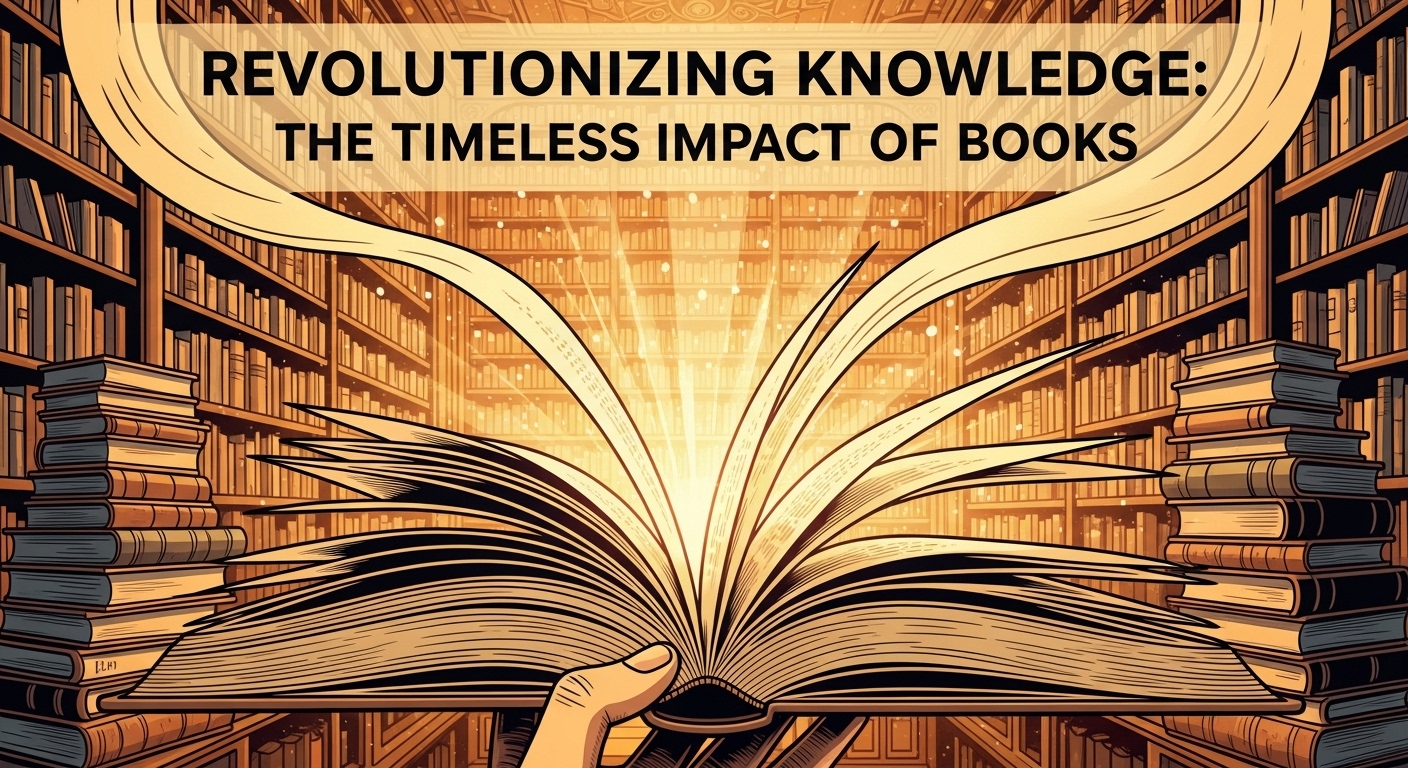Books. They’ve been around for centuries, shaping cultures, educating masses, and even offering a doorway to different worlds. Whether it’s a dusty old volume from an attic or the latest bestseller, this simple creation of ink and paper or digital bytes holds immense power. From hardcover to paperbacks to e-books, books hold stories or knowledge or sometimes a bit of both. I’ve spent countless nights nestled in the warmth of a book, sometimes forgetting the world outside. It’s funny how a bunch of pages bound together can do that to you.
The Evolution of Books
Books have come a long way from the ancient scrolls and clay tablets. The journey from hand-scribed manuscripts to the invention of the printing press was revolutionary. Johannes Gutenberg and his printing press without a doubt transformed the way we consume knowledge. Suddenly, books weren’t just for the elite. They were for everyone. This democratization of knowledge was huge.
Print, Digital, and Beyond
Fast forward to today, we have e-books, audiobooks, and who knows what’s next. While some argue that digital formats lack the charm of a physical book, they indisputably offer convenience. Imagine carrying a library in your pocket. Yet, there’s something irreplaceable about the smell of a new book or the feel of its pages between your fingers. Each format has its place, and in many ways, they complement each other.
The Art of Collecting
For some, books become a collection, almost like art pieces. Rare editions, signed copies, first prints. It’s not just about reading anymore; it’s about owning a piece of history or a story that holds a special place. There’s a whole community dedicated to this pursuit. The thrill of discovering a rare find is akin to a treasure hunt. And let’s not even get started on the whole debate between digital libraries and physical ones. Each has its merits, but the collectors know where their heart lies.
The Impact of Books on Society
Books are more than just words on paper; they’re mirrors reflecting society and at times, changing it. Whether sparking revolutions or encouraging empathy, their influence is vast. Novels like “1984” and “To Kill a Mockingbird” have stirred conversations around topics like surveillance and racial injustice. They push boundaries and challenge norms.
Books as Educators
They educate, inform, and sometimes even provoke thought. Textbooks and scholarly articles are the backbone of formal education. But outside the confines of a classroom, books teach life lessons, ethics, empathy. Non-fiction, fiction, biographies, each genre adds a layer of understanding to our perception of the world.
Book Clubs and Discussions
Book clubs have become a space for readers to connect, discuss, and debate. They’re a testament to the social aspect of reading. Sharing insights or differing opinions often leads to broader understandings. In a way, they’re like little theaters where stories come to life in the discussions, reminiscent of shared storytelling sessions of old. Speaking of theaters, if you’re interested in more creative expressions like plays, check out this resource.
Cultural Significance
Books preserve culture, language, and history. They are time capsules, giving future generations a glimpse into the past. Think of how much we’ve learned about ancient civilizations through their texts. Or how literary works contribute to national identities. The cultural impact of books is profound and often goes beyond the surface.
The Personal Connection
On a personal level, books mean different things to different people. For some, they are an escape. For others, a way to connect with like-minded souls. A comfort, a challenge, a companion. They can be all those things and more.
Reader and Author Relationship
The bond between the reader and the author, even if indirect, is unique. Through words, an author shares a piece of themselves, and the reader interprets, connects, or sometimes disagrees. It’s a dance of thoughts and emotions.
Favorite Genres and Authors
We all have our favorite genres, be it fantasy, science fiction, romance, or mystery. And of course, the authors that bring these stories to life. Some readers swear by the works of J.K. Rowling or George R.R. Martin. Others might gravitate towards contemporary authors who challenge current societal norms. The greatest books of all time often include a mix of classics and modern masterpieces, catering to diverse tastes.
A Lifetime of Reading
Reading is not just a hobby; it’s a lifelong journey. From children’s books that introduce us to the joy of stories to novels that challenge our worldviews as adults. Each stage of life brings its own set of books that resonate differently.
Memory and Nostalgia
Some books stick with us long after we’ve turned the last page. They become intertwined with our memories. The first book that made you cry, the one that got you through a tough time, or the one that ignited your passion for a particular topic. These memories are powerful and often nostalgic.
Common Questions About Books
- How do I choose my next read? – Ah, the eternal question! It depends on your mood. Some rely on recommendations, while others are drawn to covers or blurbs. Book communities online can offer suggestions too.
- Do audiobooks count as reading? – Of course! They engage the imagination and can be a great way to enjoy stories when you’re on the go or doing chores.
- How do I organize my bookshelf? – By genre, author, or even color. Some prefer a chaotic mix, while others have a system. It’s personal, really.
- What’s the difference between an edition and a reprint? – An edition refers to a version of a book that might have updates or changes, while a reprint is simply another printing of the same edition.
- Why do some people prefer physical books over e-books? – It could be the tactile experience, the scent of paper, or just the absence of screens. It’s a personal choice, and each has its pros and cons.
Books, in whatever form, will continue to captivate, educate, and inspire. They are vessels of stories and knowledge, waiting to be explored. As I jot this down, I realize there’s so much more to say, but for now, I think I’ve covered the essentials. Or at least scratched the surface. Until next time, keep reading and discovering.

